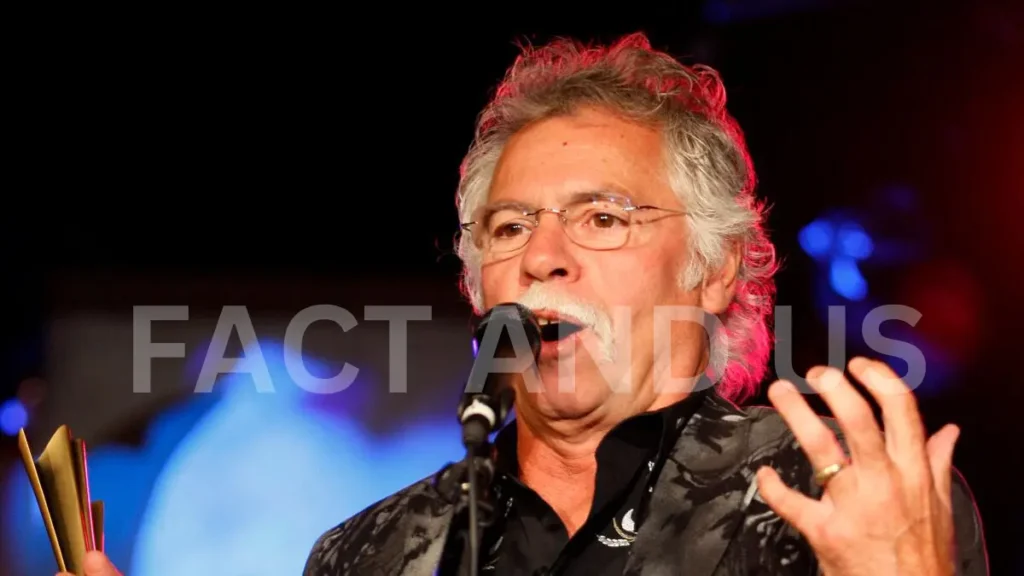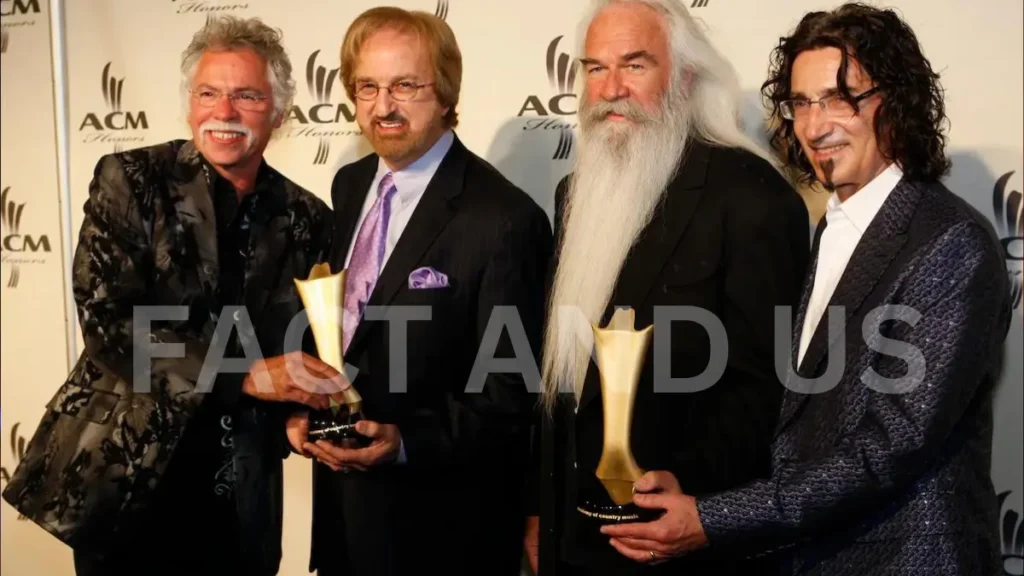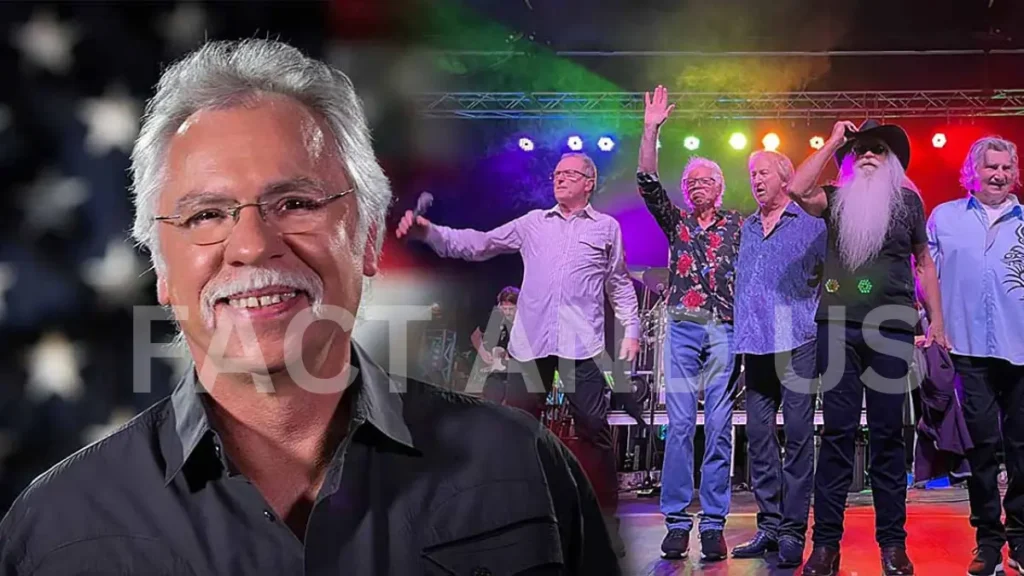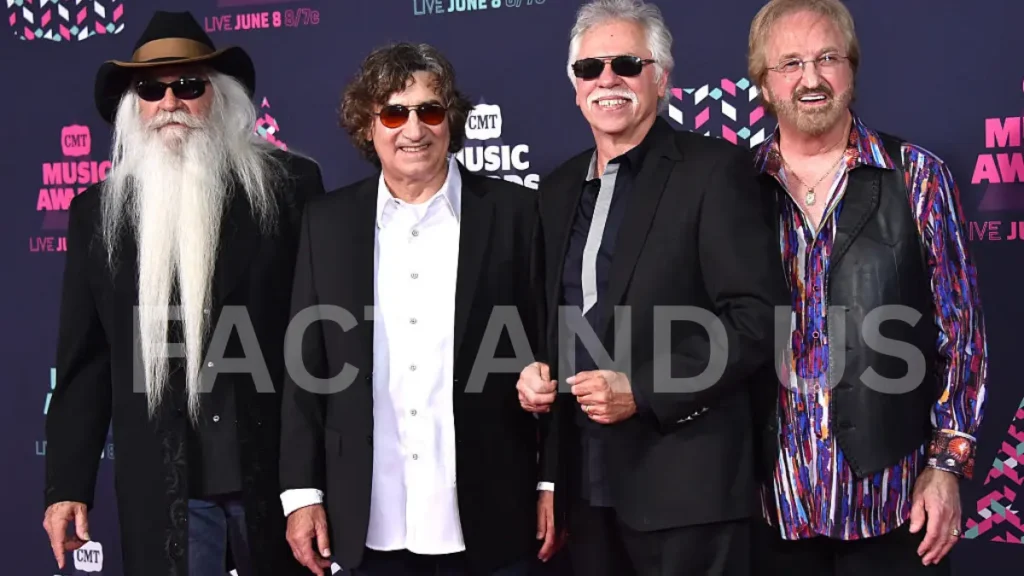Joe Bonsall, the longtime tenor vocalist for the celebrated country and gospel group the Oak Ridge Boys, died Tuesday, July 9, from complications of ALS (also known as Lou Gehrig’s disease). He was 76.The Oak Ridge Boys announced Bonsall’s death in a statement on their website: “As a 50-year member of the American music group the Oak Ridge Boys, Joe was a member of the Grand Ole Opry and inducted into the Philadelphia Music Hall of Fame, the Gospel Music Hall of Fame, the Vocal Group Hall of Fame, and the prestigious Country Music Hall of Fame.
Joe Bonsall Voice

With his smooth tenor, Bonsall was the guiding voice of some of the quartet’s biggest hits, including “American Made,” “Bobbie Sue,” and their signature “Elvira,” Number 193 on Rolling Stone‘s list of the 200 Greatest Country Songs of All Time. Onstage, he was a blur of energy, excitedly jumping up and down, bounding over to the musicians playing behind the Oaks, and flashing a big smile. In the Eighties, Bonsall was instantly recognizable for his curly hair and long mustache.
“Joe loved to sing. He loved to read,” the Oaks’ statement continued. “He loved to write. He loved to play banjo. He loved working on the farm. And he loved the Philadelphia Phillies. But Jesus and his family always came first—and we will see him again on the Promised Day. “In addition to his work with the Oaks, Bonsall was a prolific author, writing 11 books, including his recent memoir, I See Myself, which was released last year.
Bonsall spent just over 50 years in the Oak Ridge Boys: He joined the group in 1973 and announced his retirement from touring at the beginning of the year due to a neurological condition, but few knew of his ALS diagnosis. At the time Bonsall announced that he would step back from the road, it was reported that the Oak Ridge Boys planned to return to the studio in late January to record another album with producer Dave Cobb, who produced the Oaks’ 2009 album The Boys Are Back and 2018’s 17th Avenue Revival.

Bonsall was born and raised in Philadelphia, and began his music career in Pennsylvania, moving to Harrisburg in the late Sixties to sing with the gospel group the Keystone Quartet, alongside Richard Sterban, who once backed Elvis Presley as a member of J.D. Sumner and the Stamps. Through the gospel world, Sterban and Bonsall got to know Duane Allen and William Lee Golden of the Oak Ridge Boys; and when the band found themselves in need of a bass and tenor singer in the early Seventies, they enlisted the pair.
“They were the most innovative quartet in Gospel music,” Bonsall told the Oaks’ website. “They performed Gospel with a Rock approach, had a full band, wore bell-bottom pants and grew their hair long… things unheard of at the time. “By that time, the Oak Ridge Boys had already been around for decades and cycled through numerous members (they were originally founded as the Oak Ridge Quartet in 1947). This new lineup of Bonsall, Sterban, Allen, and Golden would become the Oaks’ most stable and successful over the decades to come, and the members inducted into the Country Music Hall of Fame in 2015.
The Oak Ridge Boys’ Joe Bonsall Is Retiring from Touring Due to Neuromuscular Disorder: ‘I Will Never Forget’ (Exclusive)
The death of Bonsall (born Joseph S. Bonsall Jr.) comes months after the musician announced his retirement from touring with The Oak Ridge Boys. The tenor singer told PEOPLE that he was stepping back to prioritize his health amid a years-long battle, though he kept his exact diagnosis private at the time.

“Many of you know I have been battling a slow onset (over four years now) of a neuromuscular disorder. I am now to a point that walking is impossible so I have basically retired from the road,” he said in January. “It has just gotten too difficult. It has been a great 50 years and I am thankful to all the Oak Ridge Boys band crew and staff for the constant love and support shown to me through it all.”The musician added, “I will never forget and for those of you who have been constantly holding me up in prayer I thank you and ask for you to keep on praying.”
While the Oaks were already incorporating elements of rock and pop into their gospel sound, their big breakthrough came when they started to embrace country. With their reputation as a live act firmly established, Bonsall credited Roy Clark’s manager, Jim Halsey, with giving them the encouragement to push themselves further in the studio. “He came backstage and told us we were three-and-a-half minutes (meaning one hit record) away from being a major act,” Bonsall recalled. “He said we had one of the most dynamic stage shows he’d ever seen but that we had to start singing Country songs.”
The Oak Ridge Boys did just that and, starting in the late Seventies, they embarked on one of the most wildly successful runs in country music history. They notched the first of their 17 Number One country singles in 1978 with “I’ll Be True to You.” Their 1981 album, Fancy Free, was certified twice platinum in the U.S., driven by hit singles “Elvira” and “(I’m Stettin’) Fancy Free.”“Elvira” was also the first Oak Ridge Boys single to enjoy major crossover success, reaching Number Five on the Billboard Hot 100.

The group enjoyed another major smash the following year with “Bobbie Sue,” which peaked at Number 12 on the Hot 100.“Elvira” also earned the Oak Ridge boys their first (and only) non-gospel Grammy, for Best Country Performance by a Duo or Group With Vocal. (Before that, the band had won four gospel performance Grammys, only one of which, from 1971, came before Bonsall joined the group.)
Bonsall, born and raised in Philadelphia, had been a member of The Oak Ridge Boys for over 50 years before his death. According to the band’s website, he began singing around age 4 and later “fell in love with Southern Gospel music harmony” in his mid-teens.
He joined the legendary group in 1973 before they emerged onto the country music scene, where they eventually spawned dozens of hits (including 1984’s “American Made”) and a host of accolades that landed them — including Bonsall — in the prestigious Grand Ole Opry, the Vocal Group Hall of Fame, the Gospel Music Hall of Fame and the Country Music Hall of Fame. Bonsall was also inducted into the Philadelphia Music Hall of Fame back in 1994.
In addition to being a mainstay in one of country music’s leading bands, Bonsall also achieved feats outside of music, like writing 11 books, per the press release — including an upcoming memoir titled I See Myself, which will be released in November. He joined the legendary group in 1973 before they emerged onto the country music scene, where they eventually spawned dozens of hits (including 1984’s “American Made”) and a host of accolades that landed them — including Bonsall — in the prestigious Grand Ole Opry, the Vocal Group Hall of Fame, the Gospel Music Hall of Fame and the Country Music Hall of Fame. Bonsall was also inducted into the Philadelphia Music Hall of Fame back in 1994.
